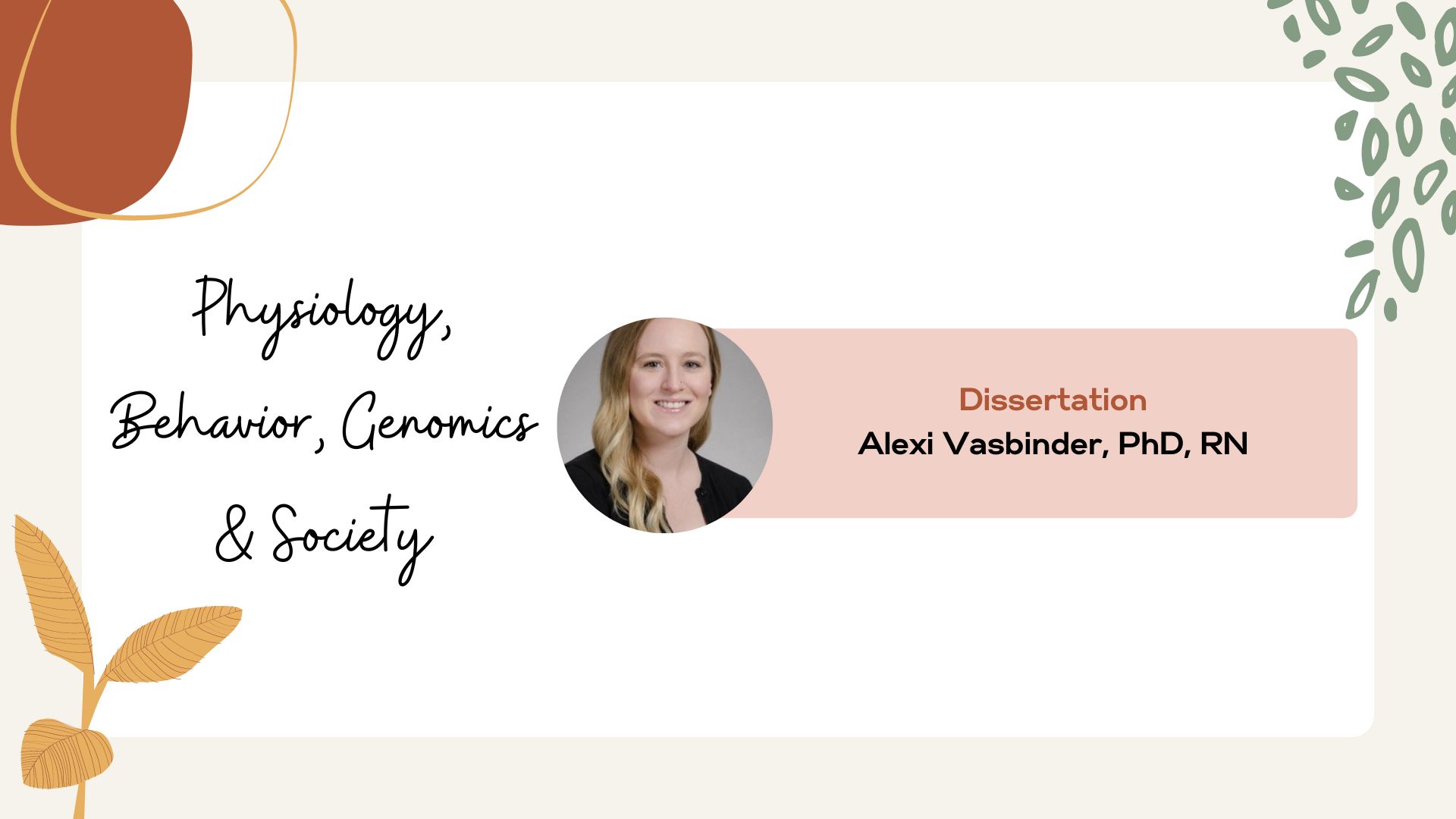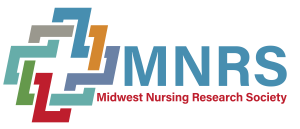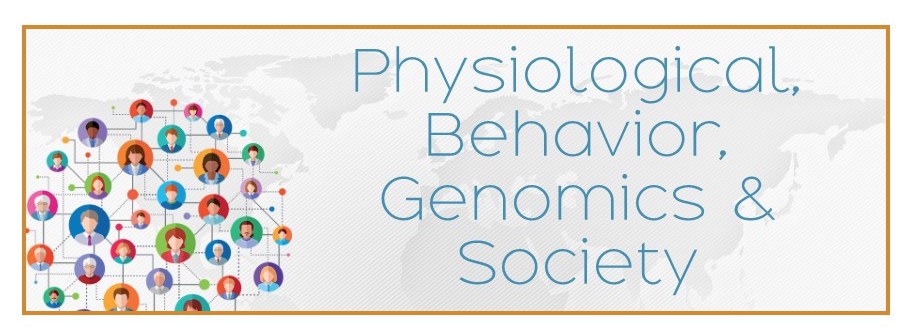Purpose
The mission of the Physiology, Behavior, Genomics & Society (PBG&S) Research & Implementation Interest Group is to promote, disseminate, and translate nursing research with an emphasis on physiological phenomena, experimental genomics, behavior, nursing care associated with emerging technologies, and their impact on society.
Who Should Join?
Investigators who share an interest in research related to physiology and genomics (including epigenetics/epigenomics), including the relationship of such phenomena on behavior and society; as well as the impact of new technologies on nursing practice and society.
RIIG Communication
Groupsite Community Networking Platform: https://mnrs.groupsite.com/
[hr]
Meet the RIIG Leadership
 |
ChairBincy Joshwa, PhD, RN |
 |
Chair-ElectBarbara Swanson, PhD, RN, FAAN |
 |
Past-ChairAlyson Hanish, PhD, MSN, RN |
 |
Grants RepresentativeMonica Wagner, PhD, RN |
[hr]
2021-2022 RIIG Award Winners

The Physiological, Behavior, Genomics & Society RIIG is proud to announce the following award opportunities to the RIIG membership:
Nominations are now closed and award recipients will be announced at the 2022 Annual Research Conference outside the Chicago area in Schaumburg, IL. If you have questions regarding the RIIG Awards, please be sure to email the RIIG Chair or contact the Executive Office at 615-432-0098 or info@mnrs.org
[hr]
Overall/Long Term Goals
- Provide an interactive forum to facilitate networking with members who have similar research and/or practice interests.
- Recognize the contributions of researchers/clinicians who advance the physiological, behavioral, genomic, and societal knowledge.
- Advance high quality nursing research in physiological phenomena, experimental genomics, behavior, and nursing care associated with emerging technologies.
- Disseminate findings related to the societal impact of new technologies. Increase membership.
- Provide opportunities for mentorship.
- Encourage the use of Co-Chairs to decrease burden on one person. Additional committee member serving in roles (e.g., communications, spotlights/newsletters.
[hr]
Recent Activities/Highlights
- Distinguished Scholar Award - Linda Witek Janusek, PhD, RN, FAAN, Marcella Niehoff School of Nursing, Loyola University Chicago, received the 2016 Distinguished Scholar Award
- Outstanding Dissertation Award - Alyson E. Hanish PhD, MSN, RN, University of Nebraska Medical Center, Omaha, NE, received the 2016 Outstanding Dissertation Award
[hr]
RIIG Minutes/Meeting Summary
If you are interested in learning more about the Physiology, Behavior, Genomics & Society RIIG, please explore the minutes from the past meetings:
Physiology, Behavior, Genomics & Society RIIG Annual Report from the 2020 Annual Research Conference
Physiology, Behavior, Genomics & Society RIIG Annual Report from the 2019 Annual Research Conference
Physiology, Behavior, Genomics & Society RIIG minutes from the 2018 Annual Research Conference
Physiology, Behavior, Genomics & Society RIIG minutes from the 2017 Annual Research Conference
Physiology, Behavior, Genomics & Society RIIG minutes from the 2015 Annual Research Conference
Member in the Spotlight
at Columbia University, School of Nursing.
I first attended the MNRS annual conference in 2018 in Cleveland, OH where I presented a poster titled, Perceptions of Neighborhood Crime Relate to Systemic Inflammation Among Pregnant African American Women. The poster won a distinguished abstract award and was published in the Western Journal of Nursing Research. I have attended MNRS each of the following years and was honored to present both posters and podium presentations during those meetings. The annual meetings are always a source of inspiration and motivation for me. This year, the 2022 annual meeting was particularly meaningful as the first in-person meeting since the pandemic began. The ability to connect with friends, hear all of the terrific presentations and see the advancing careers of colleagues and mentors reminded us of how much we missed that essential collaborative component that the annual meeting provides.
I received my PhD in nursing from The Ohio State University. My dissertation titled, Neighborhood Disorder and Epigenetic Regulation of Stress Pathways in Preterm Birth focused on perceived neighborhood disorder, DNA methylation of stress-related genes, and gestational age at birth. I was fortunate to be the inaugural awardee of the MNRS Aurora Dissertation Grant Award in 2020. The funding assisted with the cost of DNA methylation analysis and was an essential component of the success of my dissertation study.
I have been an active RIIG member in both the Perinatal, Sexual, and Reproductive RIIG where I was co-chair for the 2020-2021 year, and the Physiological, Behavior, and Genomics RIIG. Thanks to my mentors for encouraging me to participate! RIIGs are a great way to collaborate with researchers and increase leadership skills.
My program of research will continue to focus on perinatal health disparities for African American women. My next steps include proposing a K-award that will examine a multi-omic aspects of structural racism and preterm birth in African American women. The ability to understand the pathways by which stressors affect biological changes that lead to PTB will enable us to identify women at risk and provide interventions to reduce or prevent stressors and environmental factors (e.g., neighborhood disorder) and decrease the rates of PTB and infant morbidity and mortality.
Alexandra Nowak, PhD
[hr]

